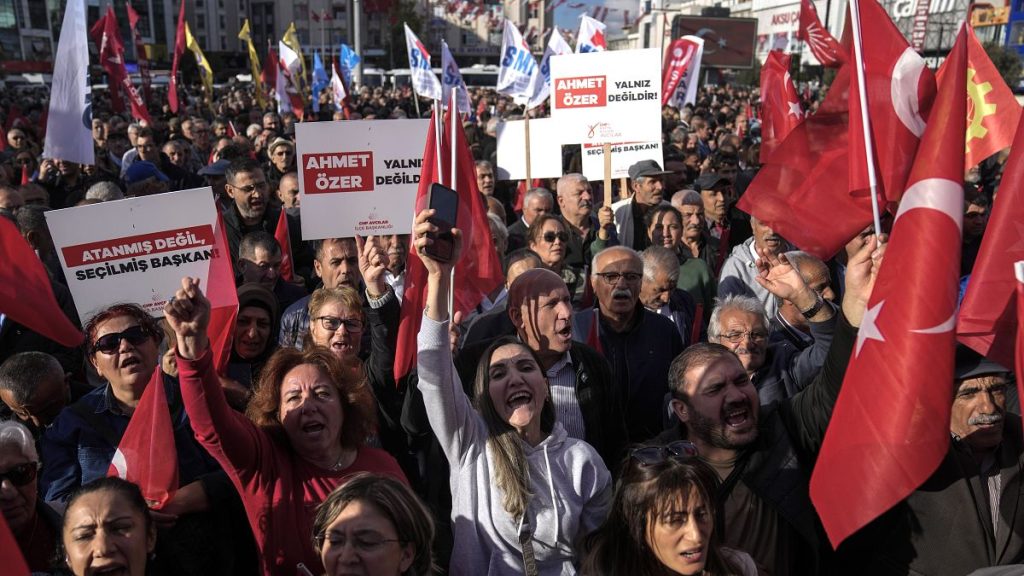The mayor of Istanbul’s Esenyurt district, Ahmet Özer, was detained by anti-terrorist police on Wednesday due to alleged connections to the Kurdistan Workers’ Party (PKK). Following his arrest, hundreds of people gathered in Istanbul to protest against the removal of the opposition party’s mayor from office. The government replaced Özer with Istanbul’s deputy governor, sparking accusations of a “coup” from opposition leaders and politicians. Demonstrators in Esenyurt called for an elected mayor and the resignation of President Recep Tayyip Erdoğan’s government.
Özer, a former academic from Van in eastern Türkiye, was elected mayor of Esenyurt in March. The investigation into his alleged PKK connections uncovered contacts with the group for over 10 years. His home, vehicle, and office were searched as part of the investigation. Özer’s arrest occurred after a deadly attack on a Turkish defence company’s headquarters in Ankara, claimed by the PKK. Türkiye is currently engaged in a peace process to end the decades-long conflict between the PKK and the Turkish state, which has resulted in thousands of deaths.
The PKK, initially seeking an independent Kurdish state, shifted its goals in the 1990s to demanding increased political and cultural rights for Kurds within Türkiye. Despite this shift, Western allies such as the US and EU classify the PKK as a terrorist organization. Özer’s arrest and the subsequent protests highlight the ongoing tensions surrounding the Kurdish issue in Türkiye. The replacement of an elected mayor with an appointed official has raised concerns about democracy and government interference in local politics.
The demonstrations in Esenyurt expressed frustration with the government’s actions and emphasized the desire for elected officials to represent the will of the people. Calls for President Erdoğan’s government to resign reflect broader dissatisfaction with the current administration’s handling of political issues. The arrest of Özer, a prominent member of the opposition CHP party, has stirred controversy and raised questions about political motivations behind the crackdown on alleged PKK connections.
As Türkiye grapples with the challenge of balancing security concerns with democratic principles, the arrest of a mayor for alleged ties to a banned militant group underscores the complexity of the Kurdish issue. The peace process aimed at resolving the conflict between the PKK and the Turkish state remains fragile, with incidents like the attack on the defence company’s headquarters causing further tension. The ongoing debate over Kurdish rights and autonomy within Türkiye continues to shape political dynamics and public sentiment in the country.


